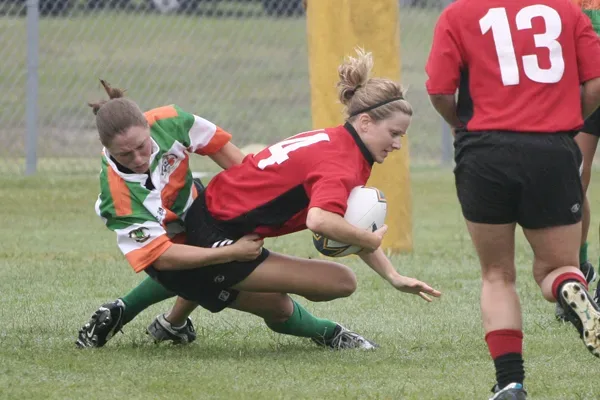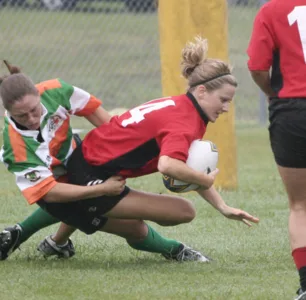Rugby is a sport that requires a wide range of skills and positions, each with its own unique responsibilities. One of these positions is the winger, whose role is to provide support and create scoring opportunities. In this article, we will explore the role of the winger in rugby and what makes this position so important to a successful rugby team.
The winger’s primary responsibility is to provide support to the team’s attack by either receiving passes from the centre or fly-half, or by running with the ball and evading the opposition’s defence. They must be able to run at pace, be agile, and possess excellent ball-handling skills, as well as the ability to make split-second decisions and find space on the field. Additionally, wingers must be strong in the air, able to leap high and secure the ball with their hands.
Winger’s also play an important role in defence, as they are often the last line of defence and must be able to tackle and stop the opposition’s attack. They must be fast, powerful, and have excellent timing, as they are often the first to make contact with the opposition.
To be successful as a winger, one must have a combination of physical and mental attributes. Physically, wingers must be fast and agile, with good hand-eye coordination and the ability to run at pace. Mentally, they must have excellent spatial awareness and the ability to make quick decisions under pressure. Additionally, wingers must be able to work well as part of a team, as they are often the link between the forwards and the backs, and must be able to communicate effectively with both groups.
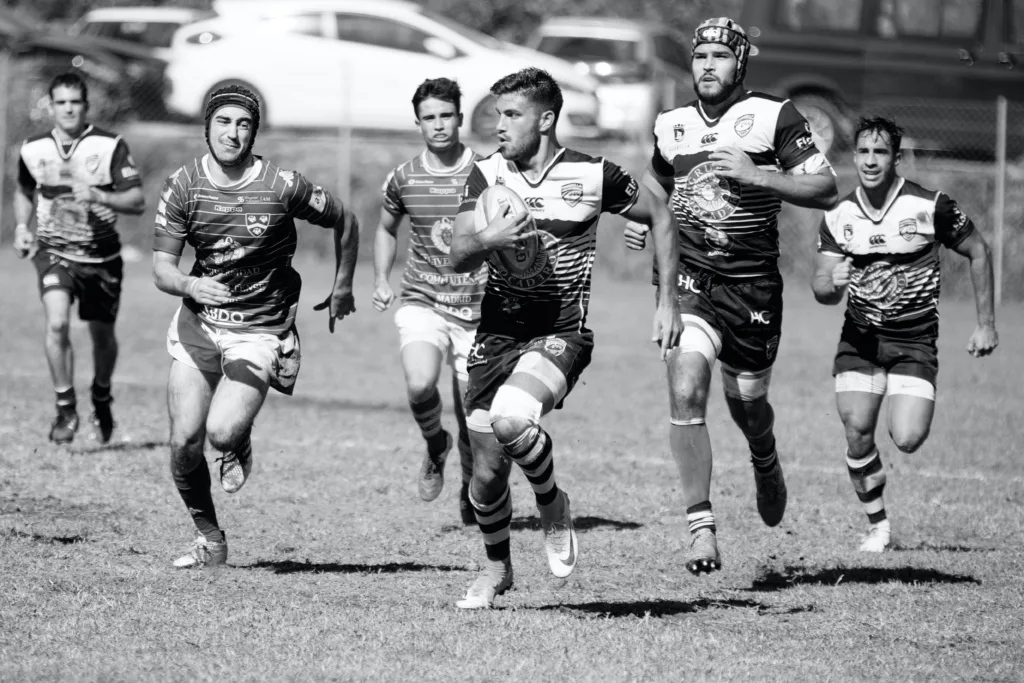
What are the key physical and mental attributes of a winger
The key physical attributes of a winger in rugby include:
- Speed: Wingers must have the ability to run at pace and have the speed to outrun their opponents.
- Agility: Wingers must have good footwork and the ability to change direction quickly, making them difficult for the opposition to tackle.
- Ball-handling skills: Wingers must be able to catch and pass the ball accurately, as well as having the ability to evade tackles and keep hold of the ball.
- Strength: Wingers must have good upper body strength to enable them to hold off opponents and make tackles, as well as the ability to jump high and secure the ball in the air.
- Endurance: Wingers must have good endurance levels to be able to perform at a high level for the entire game.
The key mental attributes of a winger in rugby include:
- Spatial awareness: Wingers must have a good understanding of the space around them and the ability to make quick decisions under pressure.
- Decision-making: Wingers must be able to make split-second decisions and choose the best option for their team in any given situation.
- Communication skills: Wingers must be able to communicate effectively with their teammates, particularly with the forwards and the backs, to coordinate their movements on the field.
- Mental toughness: Wingers must have the mental toughness to perform under pressure and the resilience to bounce back from setbacks.
- Teamwork: Wingers must be able to work effectively as part of a team, making them a valuable asset to their team’s success.
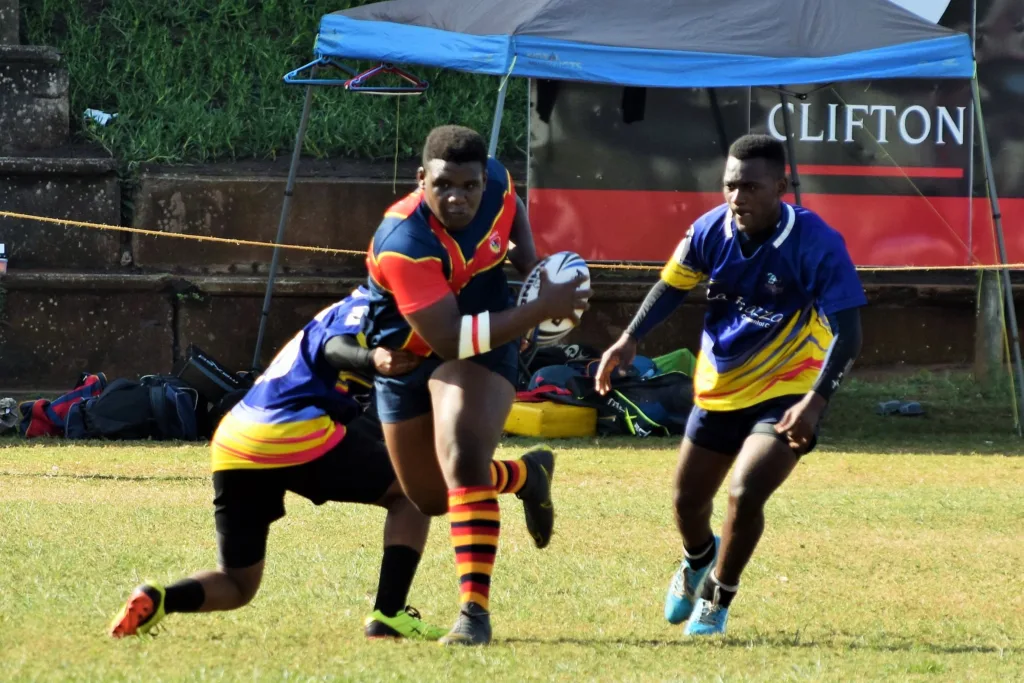
How can I become a better winger
If you want to become a better winger in rugby, there are several steps you can take to improve your skills and abilities:
- Practise your ball-handling skills: Work on catching and passing the ball accurately and consistently. This can be done through drills and exercises, such as passing and catching with a partner.
- Improve your speed and agility: Incorporate speed and agility drills into your training routine, such as sprints and ladder drills, to improve your footwork and ability to change direction quickly.
- Strengthen your upper body: Incorporate weight training and resistance exercises into your training routine to build your upper body strength, which will help you hold off opponents and make tackles.
- Increase your endurance: Incorporate endurance training into your routine, such as running, cycling, or swimming, to build your stamina and improve your ability to perform at a high level for the entire game.
- Work on your mental toughness: Mental toughness is an important aspect of being a successful winger. Focus on building your resilience and mental toughness through practices such as visualisation, goal-setting, and positive self-talk.
- Watch and learn from other wingers: Observe the techniques and strategies used by successful wingers in the game, and incorporate what you learn into your own training and performance.
- Play regularly: The best way to become a better winger is to play as much rugby as possible, both in games and in training sessions. The more experience you have, the more opportunities you will have to develop and refine your skills.
Remember, becoming a better winger requires a combination of physical and mental training and a dedication to continuous improvement. With hard work and determination, you can develop the skills and attributes needed to be a successful winger in rugby.
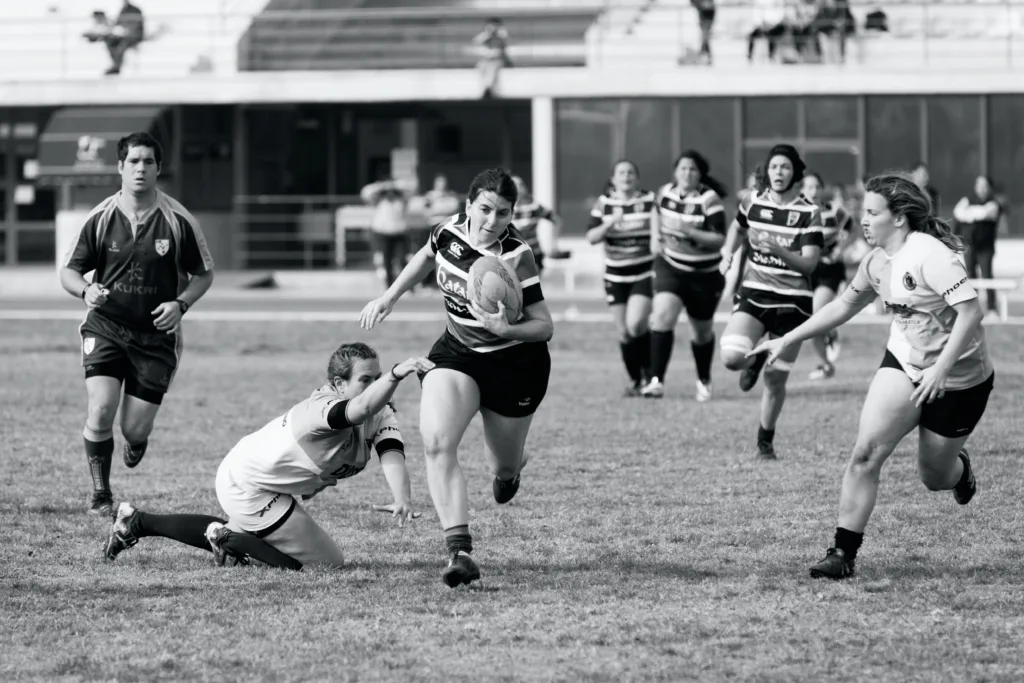
Famous female wingers
There are many talented female wingers in rugby who have made a significant impact on the sport. Some of the most famous female wingers include:
- Portia Woodman: A New Zealand rugby union player who currently plays for the Black Ferns and the Auckland Storm. Woodman is widely regarded as one of the best female wingers in the world and has won numerous awards and accolades for her performances.
- Charlotte Caslick: An Australian rugby sevens player who has represented her country at numerous international tournaments, including the Olympics. Caslick is known for her speed, agility, and attacking prowess and is considered one of the best female wingers in the sport.
- Kelera Nawai: A Fijian rugby sevens player who has represented her country at numerous international tournaments, including the Commonwealth Games. Nawai is known for her speed, power, and ability to score tries and is considered one of the best female wingers in the sport.
- Magali Harvey: A Canadian rugby union player who has represented her country at numerous international tournaments, including the Women’s Rugby World Cup. Harvey is known for her quick thinking, ball-handling skills, and ability to score tries and is considered one of the best female wingers in the sport.
- Lotte Clapp: An English rugby union player who has represented her country at numerous international tournaments, including the Six Nations and the Women’s Rugby World Cup. Clapp is known for her speed, power, and ability to score tries and is considered one of the best female wingers in the sport.
These are just a few examples of the many talented female wingers in rugby. Each of these players has made a significant impact on the sport and continues to inspire and motivate young female rugby players around the world.
Irish female wingers
There have been many talented female wingers in Irish rugby who have made a significant impact on the sport. Some of the most notable Irish female wingers include:
- Hannah Tyrrell: An Irish rugby union player who has represented her country at international level and plays for the Leinster Rugby team. Tyrrell is known for her speed, agility, and ability to score tries and is considered one of the best female wingers in Ireland.
- Alison Miller: An Irish rugby union player who has represented her country at international level and plays for the Connacht Rugby team. Miller is known for her power, ball-handling skills, and ability to score tries and is considered one of the best female wingers in Ireland.
- Eimear Considine: An Irish rugby union player who has represented her country at international level and plays for the Munster Rugby team. Considine is known for her speed, power, and ability to score tries and is considered one of the best female wingers in Ireland.
- Beibhinn Parsons: An Irish rugby union player who has represented her country at international level and plays for Blackrock and the Connacht Rugby team. Parsons is known for her quick thinking, ball-handling skills, and ability to score tries and is considered one of the best female wingers in Ireland.
These are just a few examples of the many talented female wingers in Irish rugby. Each of these players has made a significant impact on the sport and continues to inspire and motivate young female rugby players in Ireland.
In conclusion, the role of the winger in rugby is crucial to the success of a team. They must be fast, agile, and possess excellent ball-handling skills, as well as the ability to make split-second decisions and find space on the field. Additionally, wingers must be strong in the air, able to leap high and secure the ball with their hands, and must be able to tackle and stop the opposition’s attack. With the right combination of physical and mental attributes, a successful winger can be a valuable asset to any rugby team.
